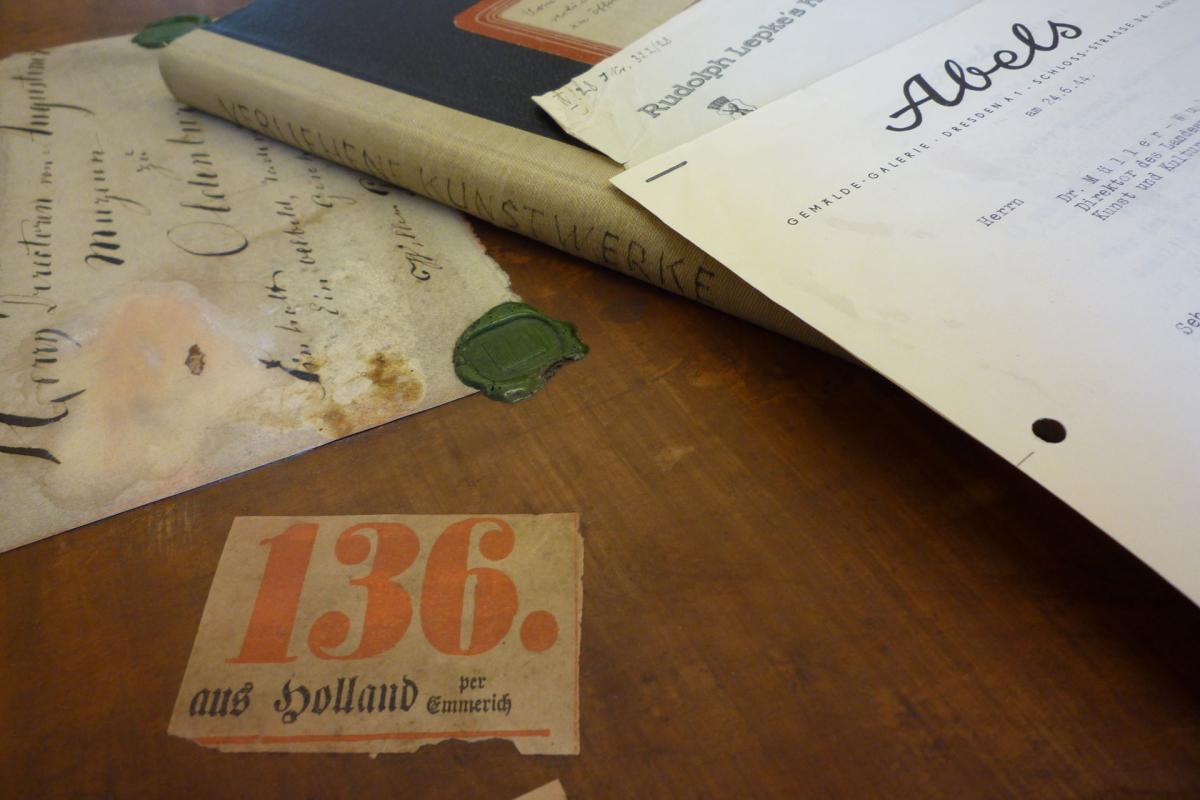Press release issued by the Advisory Commission on Nazi-Looted Cultural Property on 4 September 2023:
The Advisory Commission on Nazi-Looted Cultural Property goes public with a memorandum calling on the federal government to pass a law on restitution so as to explicitly assume responsibility as the legal successor to the National Socialist state.
The Advisory Commission on Nazi-Looted Cultural Property was established 20 years ago. It is made up of ten public figures under the former President of the Federal Constitutional Court, Prof. Dr. Hans-Jürgen Papier, as chairperson, and advises on particularly complex looted art cases. It was established in 2003 by the federal government, the Länder and the national associations of local authorities with the aim of mediating in the event of differences between the parties involved over the restitution of cultural property seized as a result of Nazi persecution. It is the only institution of its kind in Germany.
A festive event will be held on 14 September 2023 in Berlin to celebrate the 20th anniversary of the Advisory Commission, with the participation of politicians, researchers, victims' associations and claimants. The Advisory Commission has taken this occasion to issue a memorandum outlining the need for a reform of its work and of the law on restitution.
The 23 recommendations issued by the Advisory Commission on Nazi-Looted Cultural Property have been regarded as trend-setting for years now, both in Germany and abroad. They play an important role in the decision-making process in which museums and their sponsoring bodies engage, and they are of considerable significance to the art market. The small number of recommendations issued by the Commission is due to the small number of requests submitted for mediation. To date, the victims and their descendants can only request mediation through the Commission if the institution dedicated to the preservation of cultural property agrees to this. By contrast, there is still a large number of items of Nazi-looted art that have not been restituted. Some 40,000 search entries and a further 35,000 Found-Object Reports of seized cultural assets are listed in the so-called Lost Art Database alone, a platform dedicated to the publication of such international search and Found-Object Reports.
This means that the conditions under which the Advisory Commission operates continue to be unsatisfactory. Both in Germany and abroad, there is ongoing criticism that the Federal Republic is neither sufficiently able nor genuinely willing to redress Nazi injustice with regard to cultural property in an adequate and comprehensive manner.
In view of this and on the occasion of its 20th anniversary, it is important to the Advisory Commission to identify potential structural weaknesses for itself and with a view to the future and to set out necessary or conceivable approaches to reform.
The option to lodge a unilateral request for mediation: The main obstacle to comprehensive handling of looted art cases by the Advisory Commission is that the descendants of the victims do not have an option to initiate proceedings unilaterally. For this reason, the Advisory Commission calls for victims and their descendants to be given the opportunity to initiate proceedings before the Commission without having to depend on the voluntary cooperation of the cultural institution in whose custody the cultural property is.
Binding effect of the decisions: The Advisory Commission can currently only make recommendations and not issue binding decisions. The implementation of these decisions is left to the parties concerned. For this reason, legislation is required to regulate the establishment, status and composition of the Commission and also the decision-making procedure it follows.
Cultural property in private hands – substantive legislation on restitution is indispensable Common practice in Germany has meant that up to now, virtually without exception, proceedings have dealt with cultural property in public ownership, to the exclusion of looted art owned by private individuals and private institutions. The Advisory Commission calls for Nazi-looted art held by private institutions and private individuals to be able to be included in restitution proceedings as well. If the aim is to go beyond the notion of voluntary action here, comprehensive legislation on restitution is required: under current civil law, claims for restitution linked to seizure as a result of Nazi persecution are not or no longer justified or enforceable.
Statutory regulatory alternatives: In the case of comprehensive legislation on restitution, the constitutional issues must be assessed and, in particular, care must be taken to ensure protection of the fundamental right of freedom of ownership under Article 14 (1) of the Basic Law. Bona fide owners who would be legally obliged to hand over cultural property would be entitled to compensation or settlement. As far as the role of the Advisory Commission is concerned, it would be conceivable to establish a solution under administrative law in which the Commission is the superior federal authority that decides on restitution requests, or else a solution under civil law in which the Commission is a compulsory arbitration court that precedes judicial proceedings. It would be a welcome step to develop the Commission further in this way since it is an institution that has now accumulated a great deal of experience and expertise.
Provenance research: Federally funded research into the provenance of works of art in Germany is inadequately regulated. In the vast majority of cases, research funds go to museums. As things currently stand, the analysis of research outcomes is not overseen by any independent organisation or body, but is likewise carried out by museums. The Advisory Commission calls for provenance research funding (a total of around 50 million euros since 2008) to no longer go solely to museums but to an independent research institute.
The Federal Republic of Germany has acknowledged its international and national responsibility as the legal successor to the German Reich, in particular to engage in the reappraisal of Nazi injustice and to return items of cultural property that were lost as a result of persecution. Germany does not live up to this political and moral responsibility because the existing regulations are inadequate, especially in controversial cases. For this reason, the Advisory Commission calls for its status and activity to be legally regulated.
The Advisory Commission’s memorandum is available from the Advisory Commission’s office.
Advisory Commission
on the return
of cultural property seized as a result of Nazi persecution,
especially Jewish property
Office
Seydelstraße 18
DE-10117 Berlin
Germany
Tel.: +49(0) 30 233 8493 90
geschaeftsstelle@beratende-kommission.de
www.beratende-kommission.de


